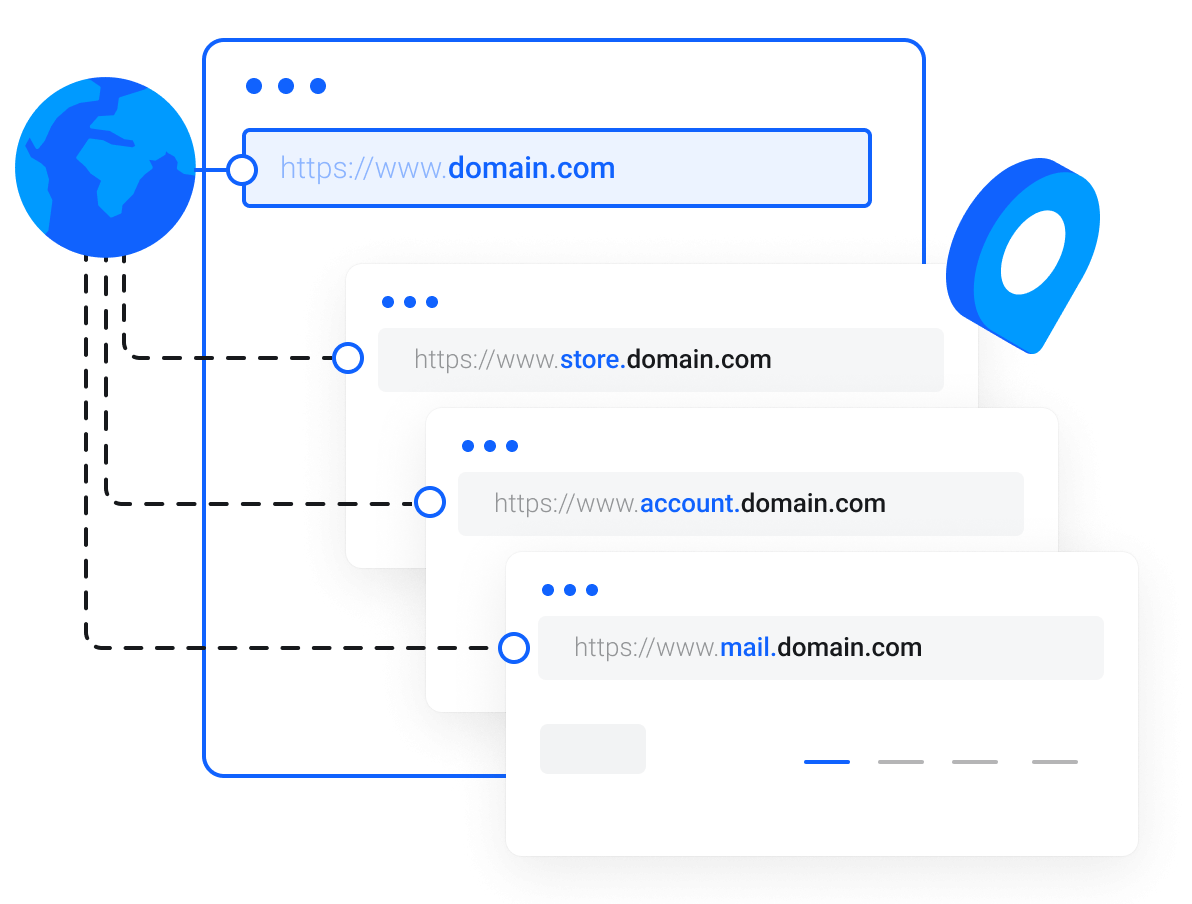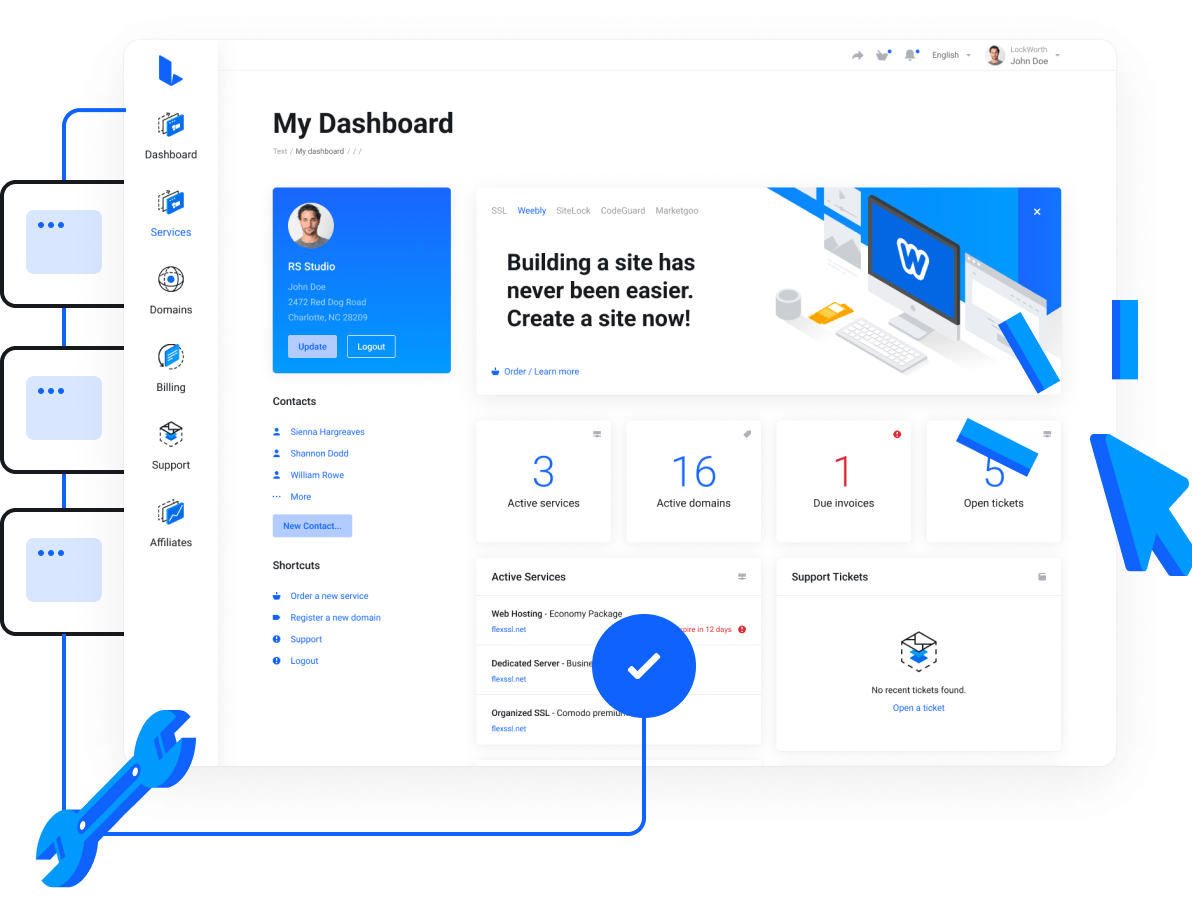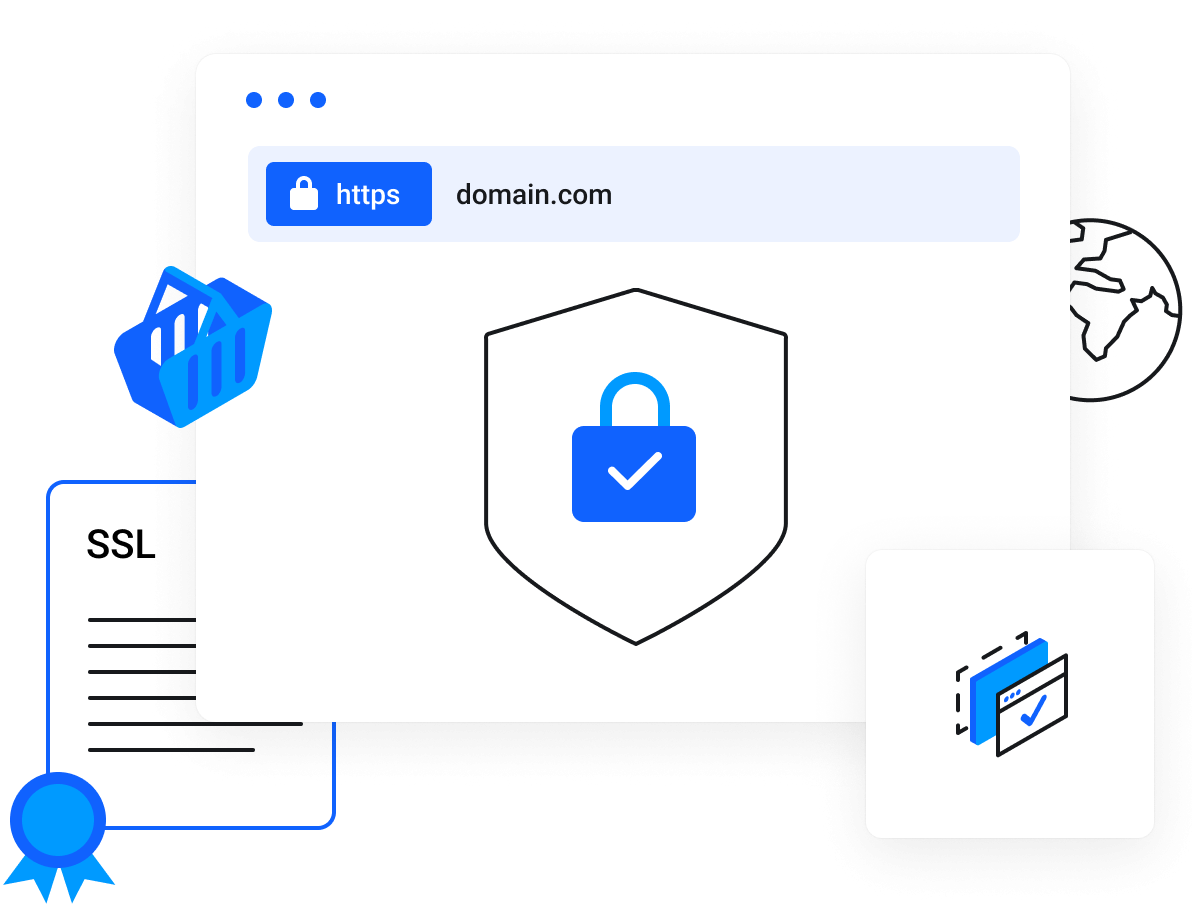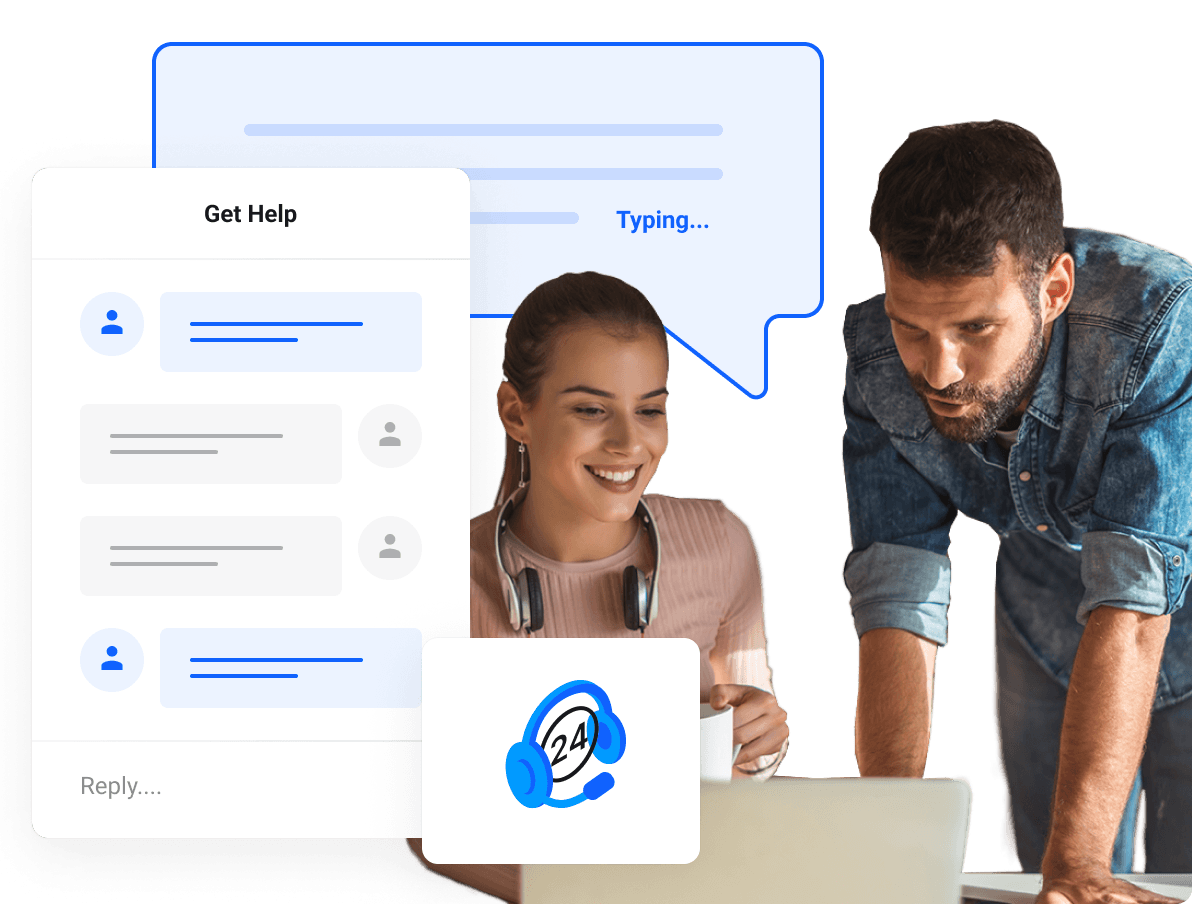A domain name is the web address or URL where visitors find your website. A custom domain gives your website a professional look, strengthens your brand and helps visitors find you online.
Purchasing a domain and a hosting package are two different but complementary components in the process of setting up a website:
1. **Domain**: This is the name of your website, like `example.com`. When you purchase a domain, you buy the right to use that name for a certain period of time (usually a year or more). The domain is used as an address where surfers can find your website on the web.
2. **Storage Package**: This is the service where the content of your website is stored, such as HTML files, images, video and other data. A hosting package provides the required resources (such as disk space and memory) for your website to be accessible on the Internet. This is actually the "place" where your website lives.
In other words, the domain is the address of your website, and the hosting package is where the content of the website is stored. Both are important for your website to be accessible and appear online.
Getting a free domain name is possible, although it often comes with some limitations. Here are some common ways to get a free domain name:
1. **Free domain registrars**: Some domain registrars offer free domains, usually with specific extensions like `.tk`, `.ml`, `.ga`, `.cf` or `.gq`. Examples include Freenom and Dot.tk. These domains may not have the same level of credibility as more common TLDs such as `.com` or `.net`.
2. **Web Hosting Providers**: Some web hosting companies offer a free domain name as part of their hosting packages. This is usually a promotional offer and may require a hosting plan commitment. Examples include Bluehost, Hostinger, and SiteGround.
3. **Website Builders**: Many website builders, such as Wix, Weebly and WordPress.com, offer free domain names as part of their service. These are usually subdomains of the builder's main domain (eg `yourname.wixsite.com'), but some offer free custom domains for the first year if you sign up for a premium plan.
4. **Educational institutions or non-profits**: Certain organizations and educational institutions may offer free domains to students or non-profits as part of their mission to support education or charitable causes.
5. **Promotions**: From time to time, registrars and hosting companies run promotions where they offer free domain names for a limited time. Be sure to check the terms and conditions, as these often come with restrictions or renewal fees.
Keep in mind that while a free domain may be tempting, it's important to consider the potential downsides, such as limited control, possible ads, or lack of professionalism.
Privacy protection for a domain name, also known as "WHOIS privacy protection" or "Privacy Protection," can be worth the investment in several cases:
1. **Prevent access to personal information**: Privacy protection provides a protective layer between your information and the public. If you register a domain without privacy protection, your information (such as name, address, phone, and email) may be available to someone performing a WHOIS lookup, which may expose you to spam, unsolicited advertising, or even fraudulent attempts.
2. **Improved Information Security**: With Privacy Protection, your contact information is not displayed on public WHOIS sites, which may reduce the risk of identity theft or other cyber attacks targeting private individuals.
3. **Business Identity Protection**: If you run a business, privacy protection can keep your location and other business information confidential, which can prevent unwanted access by competitors or potential customers.
4. **Prevention of advertising and sales offers**: Many who use WHOIS data to send offers to sell domains or additional services. Privacy protection can prevent these messages from reaching you.
**Is it worth it?**
It depends on your personal needs and what is important to you. If you are concerned about your privacy and security, then investing in privacy protection may be worthwhile. If you are not bothered by possible effects like spam or if your information is already public, you may not see much benefit from this investment.




